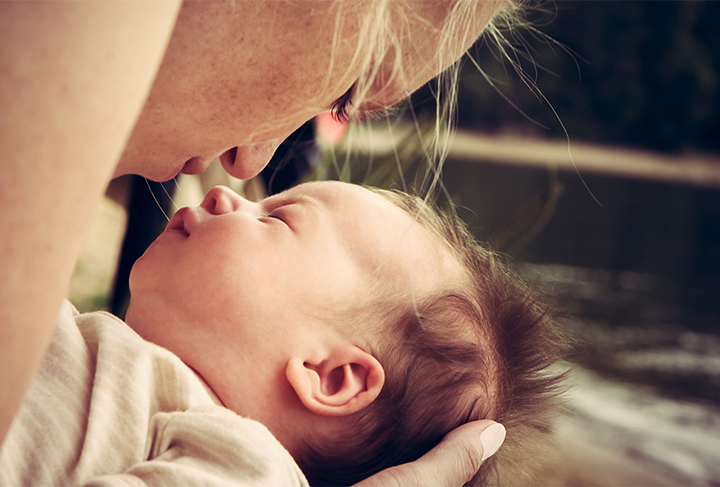Missouri Residents and Blue Cross Blue Shield patients getting care in Missouri: Click here for why Mercy issues notice to Anthem Blue Cross Blue Shield.

Food Allergies in Babies
- Home
- Services
- Conditions
- Food Allergies in Children
- Food Allergies in Babies
For years, parents have been advised to delay giving their babies and toddlers highly allergenic foods such as eggs, peanuts, and tree nuts. The idea was to protect infants and babies from potential, serious allergic reactions, including anaphylaxis. Recently, however, the National Institute of Allergy and Infectious Disease said that it’s safe to give most children over six months of age highly allergenic foods, including peanuts.
Introducing High Allergen Foods to Babies
There is no question that food allergies are on the rise. While we are not sure exactly why, the increase has led to formal studies that are changing the way we recommend the introduction of food. One of the interesting results is that delaying the introduction of the most common allergenic foods does not decrease the likelihood that a child will develop an allergy. In fact, it just might do the opposite.
While much more scientific data is needed, the official recommendation is that after six months of age, babies can be introduced to all types of foods. There are exceptions, however, and children with a strong family history of food allergies or severe atopic dermatitis (eczema), as well as a personal history of allergy to human or cow’s milk (formula) should discuss this with their doctors before beginning solids.
The American Academy of Pediatrics recommends introducing solid foods beginning at age six months in most babies. When infants begin solids, they should try one new food every 3-4 days so that in the event of an allergic reaction, the parent will know which offending food was the problem. This is true of all foods and not just the traditionally highly allergic ones. New feeders need to start slowly with very soupy, pureed foods and then progress from there to more substantial solids.
Signs of Food Allergies in Babies
Parents should be aware of any immediate reaction such as hives, vomiting, and becoming pale or short of breath. These all warrant a call to the pediatrician or to 911 if the child is in distress. After a day or so, you might see a change in the stool like diarrhea, or a diaper rash may develop. Food allergies are tricky and can develop at any time.
Common Food Allergies in Babies
Peanuts and shellfish are two common allergens, but nearly every food can cause an allergy. Peanuts, tree nuts and shellfish can also be a choking hazard. Whole or parts of nuts are not acceptable for infants. Peanuts at this age should come in the form of a flavor, such as a peanut flavored rice puff — something easily dissolvable in the mouth. Shellfish may be used as a broth or soup. Again, if your infant has a family history of these allergies, you should discuss their introduction with your child’s pediatrician.
Family History
According to Food Allergy Research and Education, one in 13 children under the age of 18 has a food allergy in the United States. The risk of a food allergy is higher in kids who have parents with a food allergy, as well as asthma or other types of allergies. If you have a specific concern, it is best to discuss that food with your pediatrician or an allergist before introducing it to your infant.
At Mercy Kids, we care for children from birth through adolescence, through anything childhood brings. Learn more about our children's care services.
